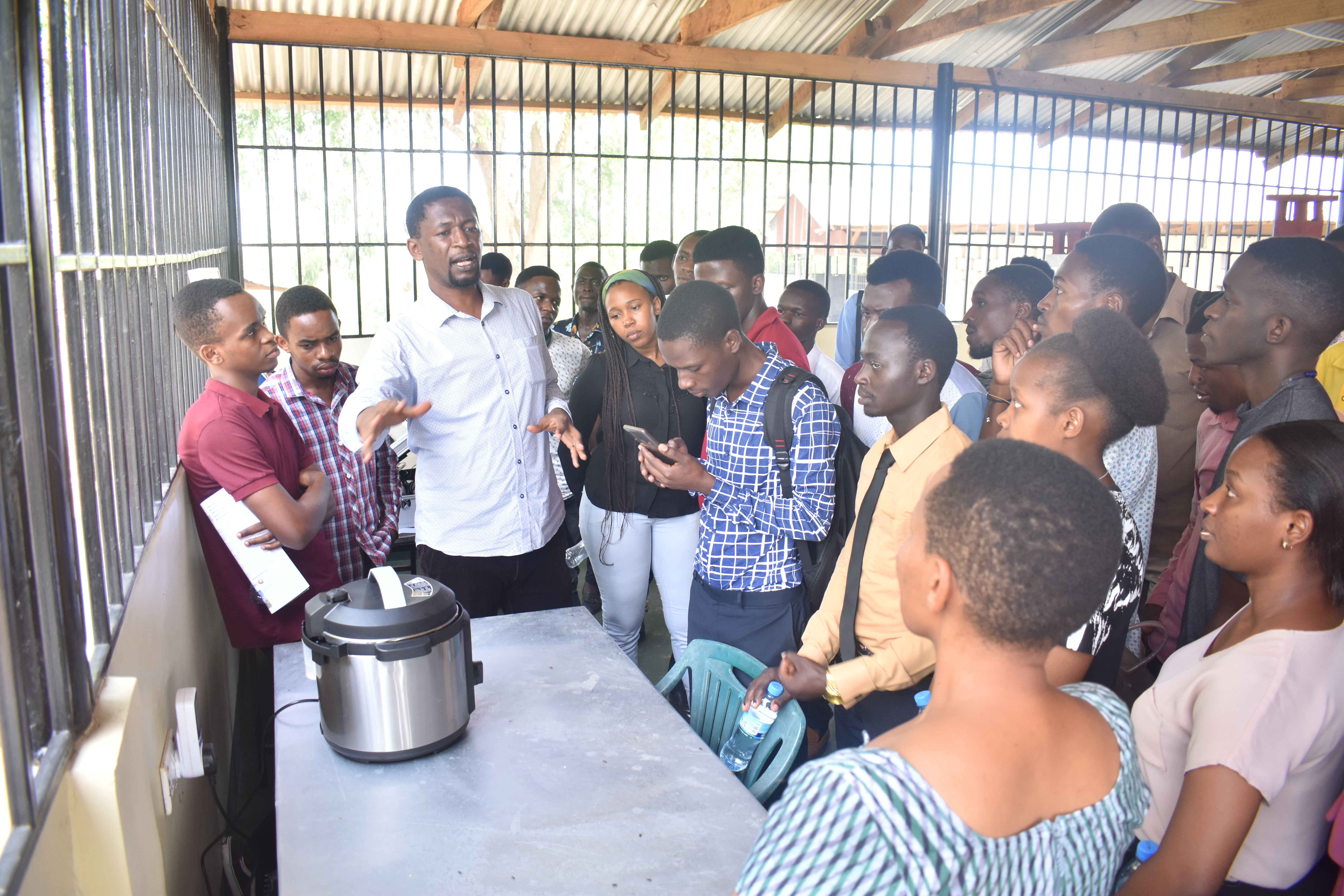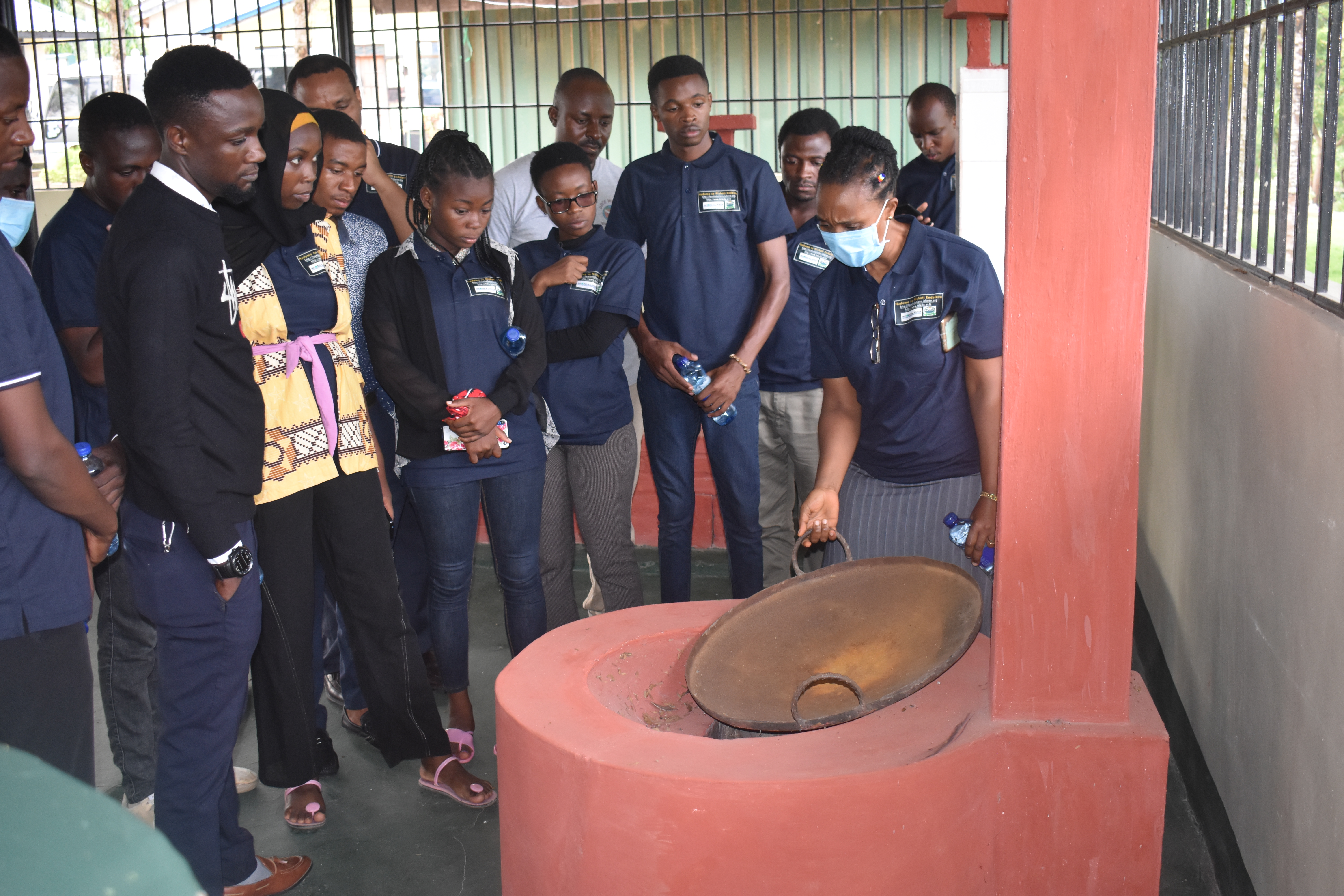Clean cooking energy solutions key in transforming the people’s lives
- Category: News
- Published: Thursday, 13 May 2021 06:21
- Written by Webmaster
- Hits: 1736
Features on The Guardian: 13th May 2021 by Gerald Kitabu
ENERGY stakeholders have called on Tanzanians to adopt clean cooking energy solutions to transform lives and rescue the environment and the forests in particular from rapid deforestation.
They were speaking at energy stakeholders’ conference and exhibitions held in Dar es Salaam on the importance of clean cooking energy solutions over the weekend. They said it saves forests by avoiding the over-use of green natural resource which result into saving water sources and reduced level of carbon emissions, improved health to users by avoiding health problems caused by smoke and other hazardous emissions from combustion of biomass.
 One of the stakeholders, Estomiah Sawe said there are a lot of potential opportunities and benefits associated with clean cooking energy solutions such as highly efficient electric pressure cookers (EPC).
One of the stakeholders, Estomiah Sawe said there are a lot of potential opportunities and benefits associated with clean cooking energy solutions such as highly efficient electric pressure cookers (EPC).
Citing an example, Sawe who is also the executive director of Tanzania Traditional Energy Development Organization (TaTEDO) said cooking energy remains a central part when it comes towards achieving the UN Sustainable Development Goal 7 and the Paris Agreement.
He recommend that as the country is making major efforts on electrification; all efforts need to be made to link these efforts with sustainable clean cooking.
According to him, the current technological developments on highly efficient electric cooking appliances bring about a huge opportunity to now link electrification, not only for lighting, but also for cooking.
Depending on the source of electricity, this is now considered by many as the long term ultimate sustainable clean cooking solution for Tanzania.
TaREDO project manager Mary Lema said: “There is a wide range of benefits for individuals who use the EPCs but also national benefits if there is sustained use and adaption of the EPCs by majority.”
Jensen Shuma from TaTEDO said: “Despite the recognised benefits of modern energy cooking services for health, local environment and climate change, large-scale adoption and sustained use of clean cooking solutions such as highly efficient electric pressure cooker and other clean cooking solutions is not succeeding.
“This is due to a variety of context specific barriers both on the demand and supply side. Among the challenges includes; poor enabling environment such as inadequate supportive policies that favours incentives for electricity cooking appliances.”
He mentioned other challenges as lack of information on the availability of the clean cooking solutions and poor affordability, practicing cooking culture which are resistant to new changes, as some are embedded and linked into cooking habits, traditions, cultural appropriateness of the device, and perceptions about the taste of food.
The stakeholders recommended that on the basis of the potential and wide benefits associated with cooking with EPCs, the government should increase its commitment, lead the efforts and put clean cooking solutions as priority during preparations and implementation of its progressive policies and strategies which will ensure significant budget allocation to promote, advocate and create awareness on the uses of clean cooking solutions.
There should be collaborative efforts among stakeholders in promoting and creating awareness on the use of highly efficient EPCs in areas with access to reliable electricity. Waive and provide tax incentives and other legal requirements.
Reduce import duty tariffs and value added taxes (VAT) to EPCs as it is applied to LPGs and solar equipment, this can promote and facilitate massive influx and supply of the appliance as to make them affordable to majority of the end users.
Ensure that only the best quality and highly efficient appliances are certified and imported by strengthen and enforcing bylaws through Tanzania Bureau of standards (TBS) and fair competition Commission (FCC) and the government should encourage the energy service providers which includes Tanzania Electric Supply Company Limited (TANESCO), Rural Energy Agency (REA) and mini-grid developers to prioritize delivering cooking services to their customers.
“This can be through developing on-bill financing mechanisms that can enable customers to repay the high upfront cost of the appliance each time they top up their electricity units. A subsidy mechanism can also be adapted to enable many connected customers to access EPCs,” he said. In her response, representative from the Ministry of Energy, Joyce Msangi said that the ministry has been creating enabling environment including providing necessary support and awareness creation to the general public on clean cooking energies.
“The government has taken several initiatives aimed at supporting clean energy. We are working on clean cooking energy sub-sector. We have National Energy Policy of 2015 which recognise the importance of clean cooking energy for economic and social development of the country. Program Manager responsible for Energy from the European Union Massimiliano Pedretti said private-public partnership is crucial for enhancing development of lean cooking energy in the country.

